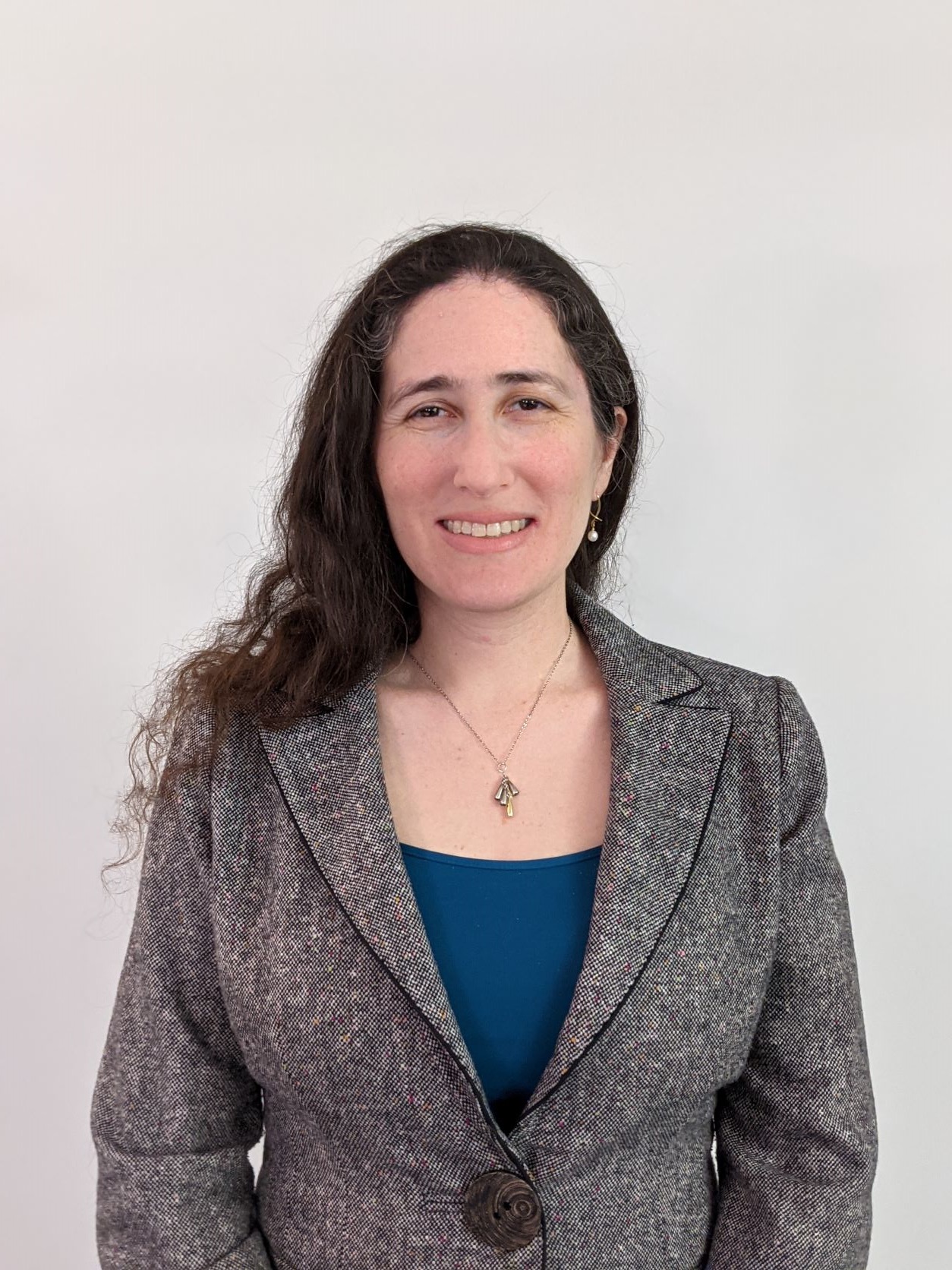Not a member? Click below to become an ISPOR member
About the Award
The ISPOR Bernie O'Brien New Investigator Award was established in 2004 in honor of Bernie O'Brien, PhD, who demonstrated a long-standing commitment to training and mentoring new scientists in the field.
Criteria:
- The recipient must be an ISPOR member.
- The nominator must be an ISPOR member for at least 2 consecutive years.
- Evidence of exceptional promise shall be assessed by evaluating the nominee's emerging body of technical and scholarly work in the fields of health economics and outcomes research.
- The emerging body of work may include research publications, technical reports and papers, books and book chapters, and other scholarly activities that establish the importance of the nominee's early contributions.
- The nominee shall be no more than 7 years from the receipt of their highest degree (e.g. PhD, MS) or training (e.g. post graduate fellowship) in outcomes research or related field as of Dec 31 of the year in which the award is being considered and no more than 10 years from their first publication as initial lead-author or corresponding-author peer-reviewed journal publication in outcomes research or related field. Applicants can request (with justification) that a period of career interruption is not counted in the eligibility period.
- A candidate may only be nominated for 1 major ISPOR award in a year.
Nomination Process:
Nominators or those self-nominating must submit an application, a letter of recommendation by an ISPOR member indicating why the nominee should receive this award, and the nominee's curriculum vitae.
Nature of the Award:
The recipient will receive the award at the Awards Ceremony at the ISPOR Conference. The recipient will receive the following:
- A complimentary registration to the ISPOR Conference
- Travel and Accommodation expenses to the ISPOR Conference, per the ISPOR Travel Reimbursement policy
- Unrestricted grant of $5,000USD
Recipients of the Bernie O'Brien New Investigator Award

Principal Health Economist; Syreon Research Institute; Budapest, Hungary
2025 - Bertalan Nemeth, PhD, MSc
Bertalan Németh PhD graduated from Corvinus University of Budapest (MSc in Quantitative economics and Operation research), Eötvös Loránd University (Pharmaceutical economics and drug policies), and Semmelweis University School of PhD Studies (PhD in Pharmacoeconomics). Between 2010 and 2015 he was a Health Economist at the Hungarian HTA office. Since August 2015 Bertalan has been a Senior Health Economist, and since 2019 a Principal Researcher at Syreon Research Institute. Bertalan was lead author or co-author of more than 50 peer reviewed publications. Bertalan was the President of the ISPOR Hungary Chapter and was the Chair of the ISPOR CEE Consortium. He was a participant in the international EUnetHTA project, the ISPOR HTA Roundtable Europe, and the Scientific Committee of the Annual Conference of the ISPOR Hungary Chapter. Bertalan is also a faculty member of ISPOR HTA Trainings and was the module leader of Health Technology Assessment for the MSc program at Eötvös Loránd University.

Senior Research Fellow (Associate Professor), Centre for Health Economics (CHE), University of York, York, England
2024 - Natalia Kunst, PhD

Select Foundation Senior Research Fellow in Health Services Research, Menzies Institute for Medical Research, University of Tasmania, Tasmania, Australia
2023 - Jessica Roydhouse, PhD

Director of Health Economics, Institute for Clinical and Economic Review, Boston, MA, USA
2022 - Melanie Whittington, PhD
Dr. Melanie Whittington completed her PhD in Health Services Research in 2016 from the University of Colorado Anschutz Medical Campus. Her research is focused on conducting and improving value assessments in the United States. She is currently the Director of Health Economics at the Institute for Clinical and Economic Review (ICER). In her role, she leads the cost-effectiveness analyses and potential budget impact analyses within ICER reviews, directs the content within the Interactive Modeler™, and advances the field of health economics by developing innovative methods with applications for value assessment. Notably, she led the economic assessments for Alzheimer’s Disease and COVID-19 treatments. She has authored more than 50 peer-reviewed manuscripts and more than ten health technology assessments.

Assistant Professor, University of Southern California School of Pharmacy, Los Angeles, California
2021 - William Padula, PhD
William’s research explores theoretical foundations of medical cost-effectiveness analysis, especially pertaining to the value of vaccines, and patient safety in hospitals for acquired conditions such as pressure injuries.
William is recipient of an NIH Career Development “K” Award to develop machine learning models that predict high-cost, hospital performance issues. He also receives grant support from Bill & Melinda Gates Foundation to develop educational material for vaccine economics in global health settings.
William currently serves as an Associate Editor for Value in Health, and Co-Chairs the ISPOR Machine Learning Methods Task force. He is also 2021 President of the U.S. National Pressure Injury Advisory Panel.

University of Washington, Washington, USA
2020 - Aasthaa Bansal, PhD
Harvard Medical School, Boston, MA, USA
2019 - Zirui Song, MD, PhD
Zirui Song, MD, PhD, is an assistant professor of healthcare policy and medicine at Harvard Medical School and Massachusetts General Hospital. A physician and health economist, Dr Song’s work focuses on strategies to improve the value of healthcare spending. This includes evaluations of spending and quality under alternative payment models, the impact of Medicare and private insurer prices on provider behavior, the economics of Medicare Advantage, and the effect of workplace wellness programs. Dr Song is a recipient of research awards from AcademyHealth, the Society of General Internal Medicine, and the American College of Physicians, and teaching awards from Harvard University. He has worked on Medicare policy in the US Department of Health and Human Services, was a Visiting Fellow at the Health Policy Commission for the Commonwealth of Massachusetts, and served on the Task Force on Health Care Reform for the Massachusetts Medical Society. Dr Song received his MD from Harvard Medical School, magna cum laude, and PhD in Health Policy (Economics) from Harvard University. He completed his residency training at Massachusetts General Hospital.
Associate Professor, Department of Health Care Policy,
Harvard Medical School,
Boston, MA, USA
2018 - Sherri Rose, PhD
Sherri Rose, PhD, is an associate professor in the Department of Health Care Policy at Harvard Medical School, where her work is centered on developing and integrating innovative statistical approaches to advance human health. Broadly, Dr. Rose's methodological research focus is nonparametric machine learning for causal inference and prediction. Within health policy, Dr. Rose works on risk adjustment, comparative effectiveness research, and health program impact evaluation. She also co-leads the Health Policy Data Science Lab at Harvard where she directs projects in computational health economics and clinical informatics. Dr. Rose coauthored the first book on machine learning for causal inference, and her recent honors include an NIH Director's New Innovator Award to develop robust estimators for generalizability. Her research has been featured in The New York Times, USA Today, Slate, and The Boston Globe. Dr. Rose received her PhD in Biostatistics from UC Berkeley before completing an NSF Mathematical Sciences Postdoctoral Research Fellowship at Johns Hopkins University.
Assistant Professor, Tufts Medical Center,
Boston, MA, USA
2017 - James D. Chambers, PhD, MPharm, MSc
James D. Chambers, PhD, MPharm, MSc, is an investigator at the Center for the Evaluation of Value and Risk in Health, Institute for Clinical Research and Health Policy Studies, Tufts Medical Center, and an assistant professor of medicine at Tufts University in Boston, MA. James received his MPharm degree from Queens University in Belfast and previously worked as a pharmacist in the UK and Ireland. He also obtained an MSc from the University of York and PhD from Brunel University. James' research interests include examining the factors that influence coverage policy for medical technology, pharmaceutical innovation, and the use and potential value of cost-effectiveness analysis in the US health care system.
Associate Professor in Health Economics, The School of Public Health and Community Medicine, The University of New South Wales (UNSW), Australia
2016 - Dr. Newall, MPH, PhD
Dr. Newall is an Associate Professor in Health Economics at The School of Public Health and Community Medicine, UNSW Australia. He is also an Honorary Fellow at the Australian National Centre for Immunisation Research and Surveillance. He completed his MPH (Hons) and PhD at the University of Sydney on the cost-effectiveness of vaccination programs.
His main research area is the economic evaluation of infectious disease prevention strategies, as well as the statistical and epidemiological analyses that inform these evaluations. He has over 40 peer-reviewed publications on a range of vaccine preventable diseases, including the epidemiology and cost-effectiveness of prevention strategies for influenza (seasonal and pandemic), pneumococcal disease, rotavirus, and human papillomavirus.
He has been appointed to the World Health Organization Roster of Experts in the area of Health Economics and has been a visiting scholar at the National Institutes of Health. He has received several awards for his research and public health impact, including the prestigious Aileen Plant Memorial Prize and the Dean's Rising Star Award from the Faculty of Medicine, UNSW.
Assistant Professor, Harvard Health Care Policy, Harvard Medical School, Boston, MA, USA
2015 - Anupam B. Jena, MD, PhD
Dr. Jena is an Assistant Professor of health care policy and medicine at Harvard Medical School and an internist at Massachusetts General Hospital. Dr. Jena is also a Faculty Research Fellow at the National Bureau of Economic Research. Dr. Jena's research involves several areas of health economics and policy including the economics of medical innovation and cost-effectiveness, the economics of physician behavior, medical malpractice, and productivity in health care. Dr. Jena graduated Phi Beta Kappa from the Massachusetts Institute of Technology and received his MD and PhD in Economics from the University of Chicago. He completed his residency in internal medicine at Massachusetts General Hospital. He is a recipient of the 2007 Eugene Garfield award from Research America for the best paper on the economic impact of medical technology. In 2013, he was the recipient of the NIH Director's Early Independence Award, a 5-year award given to 10-15 junior scientists nationally who show exceptional promise to conduct cross-cutting biomedical and behavioral science research.
Assistant Professor, Pharmaceutical Outcomes Research and Policy Program, University of Washington
2014 - Josh J. Carlson, MPH, PhD
Dr. Carlson is an Assistant Professor in the Pharmaceutical Outcomes Research and Policy Program at the University of Washington and an affiliate faculty member at the Fred Hutchinson Cancer Research Center. He graduated with his PhD from the Institute for Public Health Genetics in the School of Public Health and Community Medicine at the University of Washington in 2007 and conducted his postdoctoral training in pharmacoeconomics at the University of Washington from 2007-2009. Dr. Carlson's current research interests and work to date has primarily focused on the intersection of three areas: 1) genomics and emerging technologies in the field of personalized medicine, 2) uncertainty both in our decision-making processes and as the concept applies to the application of medical technologies in "real world" settings (i.e. outside of clinical trials) including comparative effectiveness research, and 3) economic and policy options to address these uncertainties as we seek to improve our healthcare system and the health of our population.




.jpg?sfvrsn=58780a82_0)

